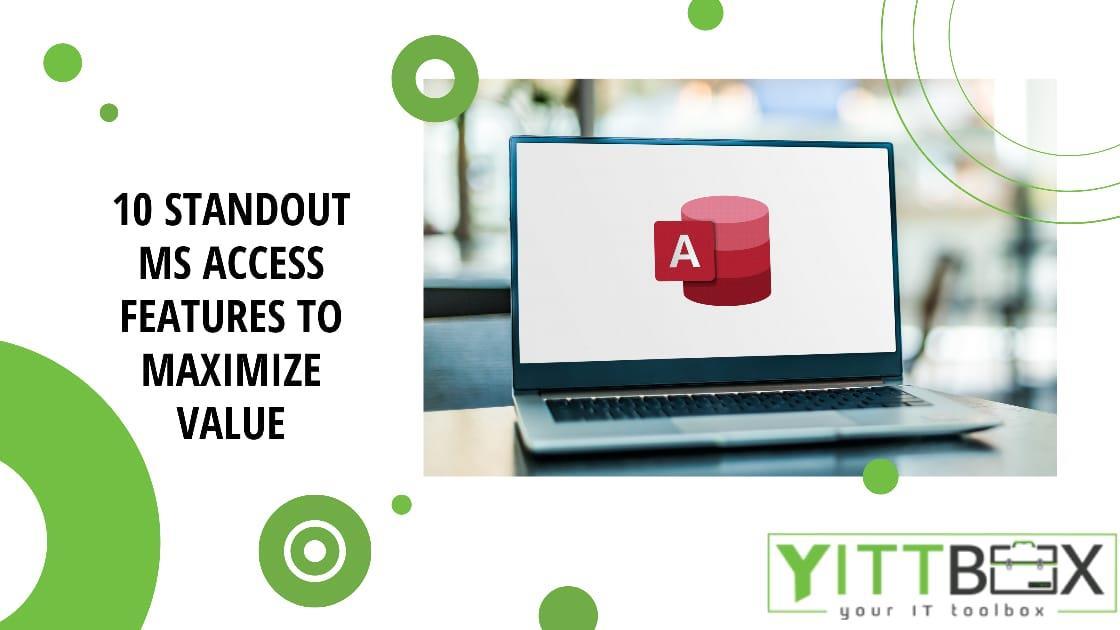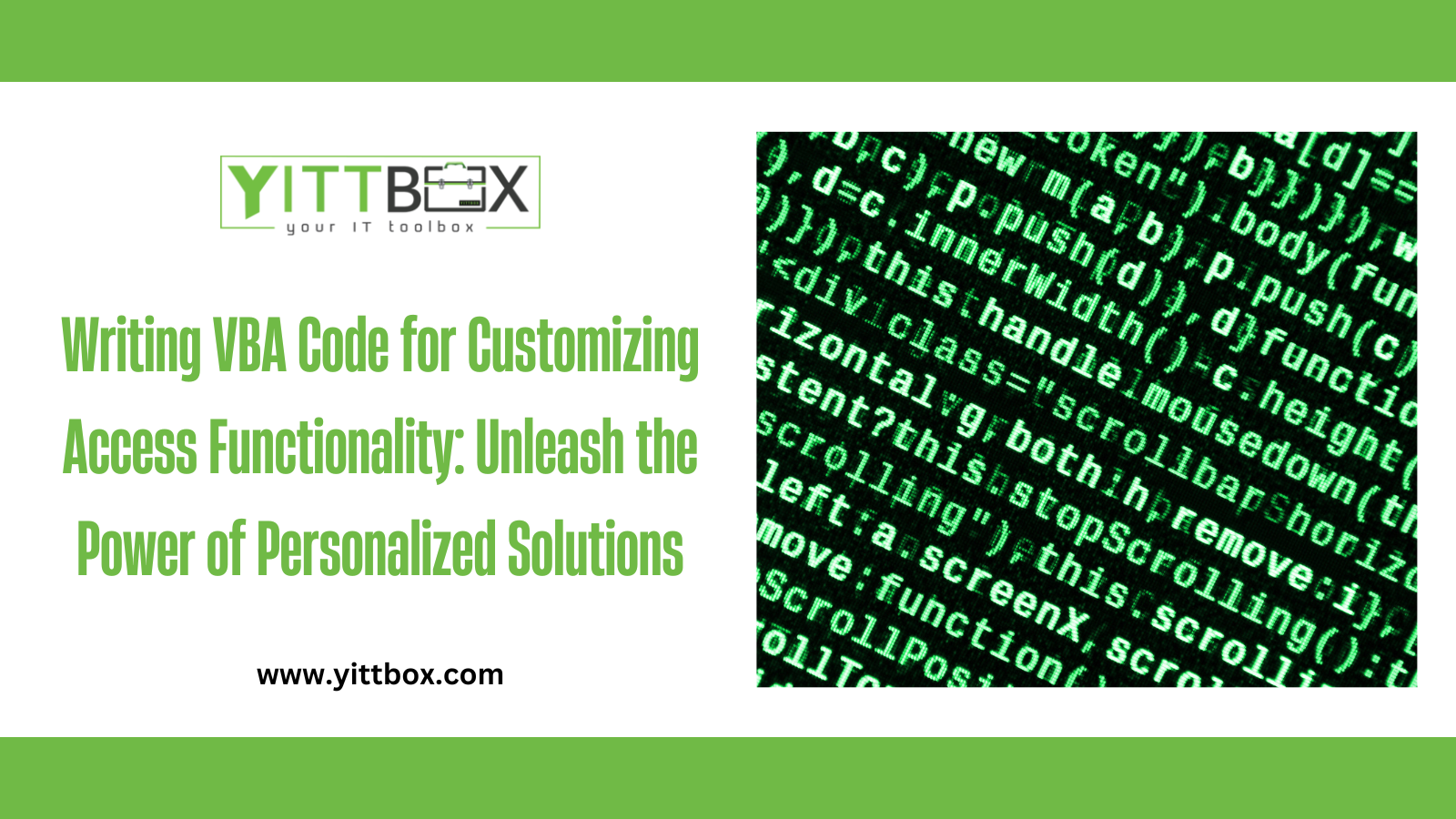Introduction to Visual Basic for Applications (VBA) in Access
Are you looking to enhance your database management skills and streamline your workflow in Microsoft Access? Look no further! Visual Basic for Applications (VBA) is a robust programming language that can supercharge your Access experience. In this comprehensive blog, we'll introduce you to the world of VBA in Access, its importance, and how it can revolutionize the way you work with databases.
Why VBA is Essential for Access?
Microsoft Access is a versatile database management system that allows users to store, retrieve, and manipulate data effectively. However, as your data complexity grows, the need for automation and customization becomes crucial. This is where VBA steps in. VBA empowers you to go beyond the standard features of Access, enabling you to automate repetitive tasks, build dynamic reports, and create user-friendly interfaces.
Getting Started with VBA in Access
Before diving into VBA, you need to enable the Developer Tab in Access to access the VBA editor. Once inside, you'll be introduced to the world of VBA modules and procedures, where you'll write your code.
Variables, Data Types, and Operators
At the core of VBA lies variables - containers for storing data. Understanding data types and operators is essential for manipulating and processing information efficiently in your Access database.
Conditional Statements and Loops
Conditional statements, like IF-THEN-ELSE, and loops, such as For and Do-While, provide the backbone for decision-making and repetitive actions. Harnessing these structures in VBA allows you to build smart applications that respond to various scenarios.
Working with Forms and Controls
Forms are a critical aspect of Access databases as they provide an interface for users to interact with data. With VBA, you can take full control of forms and their controls, respond to events, and validate user inputs.
Introduction to Access Objects
Access contains several objects like tables, queries, and reports that help manage data effectively. Learn how to interact with these objects programmatically using VBA to automate and optimize your data management.
Automating Reports and Data Analysis
Generating reports and performing data analysis are essential tasks in database management. VBA allows you to automate the report generation process and perform complex data analysis, saving you valuable time.
Error Handling and Debugging
No code is perfect, and errors are bound to happen. Learn how to implement error handling techniques and efficiently debug your VBA code, ensuring your applications run smoothly.
Best Practices and Tips
To become a VBA pro, adhere to best practices for coding. We'll share tips to optimize your VBA code for performance, readability, and maintainability, making your applications efficient and scalable.
Real-World Use Cases
Explore real-world examples of how VBA in Access can revolutionize your workflow. From inventory management systems to customer relationship management (CRM) tools, see how VBA can be applied in different scenarios.
Integration with Other Microsoft Office Applications
Discover the power of VBA in integrating Access with other Microsoft Office applications like Excel and Word. Learn how to export data to Excel, automate mail merges, and further streamline your processes.
Security and Access Control
Protecting your VBA code and setting access permissions is crucial in maintaining data integrity. Understand the security measures you can implement to safeguard your Access applications.
Conclusion
Visual Basic for Applications (VBA) is a game-changer in Microsoft Access. By mastering VBA, you can take full control of your databases, automate mundane tasks, and create sophisticated applications tailored to your needs. This blog has provided an introduction to VBA, its importance in Access, and how it can transform your database management experience.
Take the leap into VBA and unlock the full potential of Microsoft Access. Embrace the power of automation and customization, and watch as your productivity soars to new heights.

.png)





